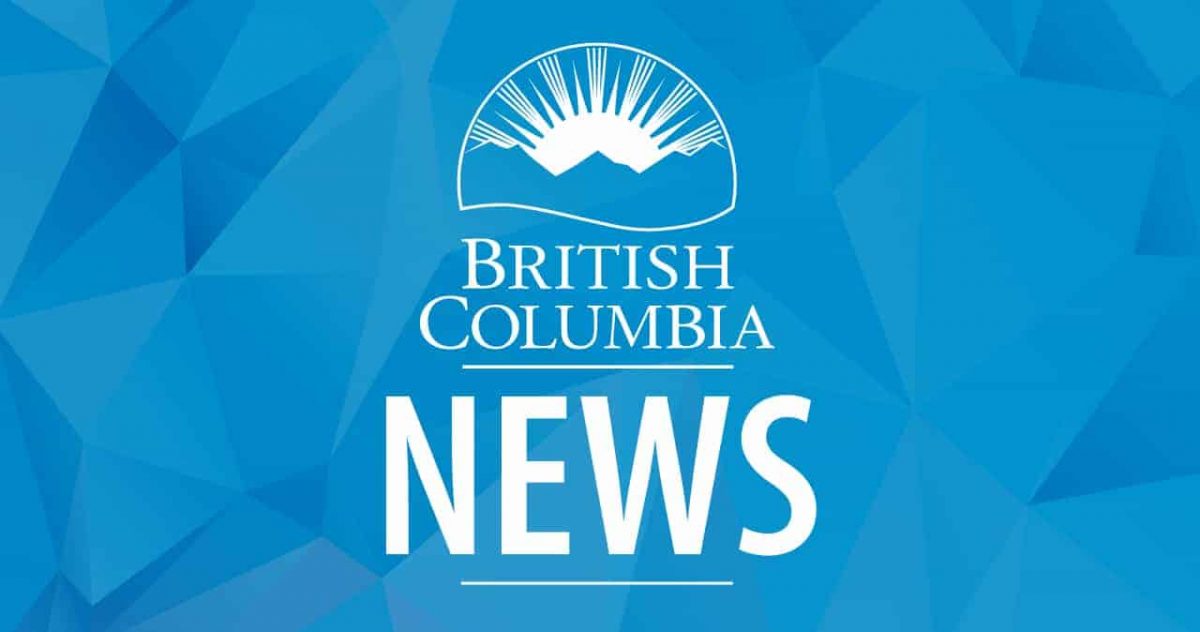
Climate action tax credit helps people with everyday costs
More than two million individuals and families will see more money in their bank accounts as the climate action tax credit arrives this week.
“Across the province, people are seeing devastating wildfires and severe drought, and this coming summer could be the worst ever. Putting a price on pollution is about fighting climate change, and to ensure it’s fair, we are providing support to most middle- and low-income families through the climate action tax credit,” said Katrine Conroy, Minister of Finance. “We will keep taking action to help with cost-of-living pressures by delivering middle-income housing, reducing child care and ICBC costs, and boosting tax credit and benefits.”
In Budget 2023, the Province increased income thresholds and climate action tax credits to support more people. This week, people in British Columbia will be receiving their fourth quarterly climate action tax credit. Budget 2024 allocated more than 100% of revenue from the carbon tax increase to the climate action tax credit increases.
A family of four receiving $890 over the course of this year will see their payments increase to $1,008 a year, starting in July 2024. Individuals receiving $447 this year will collect $504 a year, starting in July 2024.
Approximately 65% of people in B.C. receive money back through the tax credit. The credit will increase annually with the goal of 80% of individuals and families receiving the credit by 2030.
“People want us to fight pollution and they need us to help with costs. So, we’re taking action on both,” said George Heyman, Minister of Environment and Climate Change Strategy. “For over a decade and a half, a price on pollution has been a central and effective part of our efforts to tackle climate change. We are using it to fight pollution, support people through climate emergencies and put money back in the pockets of lower- and middle-income people.”
In addition to the climate action tax credit, putting a price on pollution funds technology and programs that reduce emissions for both businesses and people under the CleanBC plan, as well as climate adaptation projects that reduce wildfire risk and help prepare B.C. for climate emergencies.
B.C.’s climate action tax credit is delivered to people by direct deposit through the Canada Revenue Agency, with the federal GST/HST credit, and can take as many as 10 days to be delivered. While it’s a payment from the Province, it appears on bank statements as a payment from the Government of Canada.
The Province will not contact people about the B.C. climate action tax credit by text message. A text message about the tax credit may be fraudulent. If unsure, contact: [email protected]
Quick Facts:
- Putting a price on pollution through B.C.’s carbon tax is an important part of the CleanBC plan to create a healthier future by lowering climate-changing emissions, including through:
- transit projects, including investments of more than $142 million of carbon tax revenue in 2022-23;
- supporting people to make the switch to clean-energy sources, such as heat pumps that also reduce their heating bills; and
- community projects that reduce wildfire risk and enhance wildlife habitat and increase resiliency.
- Additional measures to strengthen the Province’s capacity to prepare for and respond to future climate emergencies include an investment of $405 million over four years:
- $154 million in operating funding and $21 million in capital funding to support additional wildfire response, recovery and infrastructure resources; and
- $234 million of new funding for priority infrastructure projects and programs to decrease flood risks in the Lower Mainland and improve the Province’s ability to manage water resources, while $18 million will support year-round delivery of government climate-emergency response and recovery programs.
Learn More:
To read about the Climate Action Tax Credit, visit: https://www2.gov.bc.ca/gov/content/taxes/income-taxes/personal/credits/climate-action
To learn about the CleanBC plan, visit: https://cleanbc.gov.bc.ca/
Details about the various measures on which B.C. spends carbon tax revenue can be found in the annual Climate Change Accountability Report: https://www2.gov.bc.ca/gov/content/environment/climate-change/planning-and-action/ccar
To learn more about B.C.’s cost-saving services, visit: https://strongerbc.gov.bc.ca/cost-of-living/
